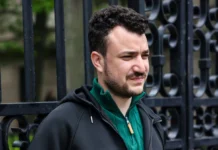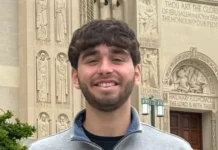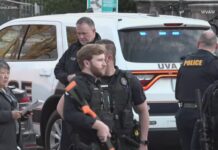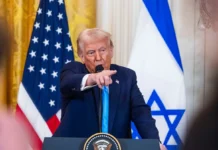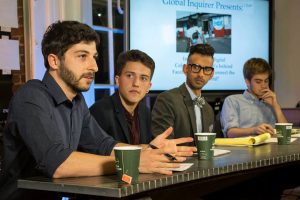
This Wednesday at 7pm, the student-run international relations podcast “Global Inquirer” will put on a live-streamed, live audience podcast at Open Grounds to discuss the role and responsibility of nations in engaging in humanitarian intervention in the Syrian Civil War. This innovative event, “When to Draw the Red Line: Justifying Humanitarian Intervention,” will feature guest speaker Mark Leon Goldberg, editor of the United Nations’ UN Dispatch blog and host of Humanity in Action’s “Global Dispatches” Podcast, as well as student staff researchers Dom Giovanniello and Anna von Spakovsky.
As their Facebook event details, the panel and speakers will “examine cases for and against humanitarian intervention in Syria’s civil war over the past seven years, and discuss what can still be done to tackle the humanitarian crisis.”
Recent UVa graduate Niko Marcich, who studied Foreign Affairs and Economics during his time in the College, will be the host for Wednesday’s event and has functioned in that role for about a year now. In the spring of 2017, UVa’s International Relations Organization (IRO) was looking for an Editor-In-Chief and host to start a new podcast project. Marcich applied and got the job.
In regard to tomorrow night’s podcast in particular, Marcich said that he saw an opportunity to highlight a humanitarian crisis that has garnered attention for years.
“The reason we’re choosing Syria as an example of when to draw the red line is because it was such a big debate at the time about whether or not we should intervene,” he explained. “I think that it can serve as a platform. From there, you can look at humanitarian crises going on in the world right now, [such as] Yemen and the Congo. What kind of conditions need to be met to intervene; when is it right to intervene?”
Putting on an event with a studio audience (and knowing that the event is being live-streamed to Facebook) can make for a challenging task.
Marcich explained, “We record [at Open Grounds], we post the link to Facebook Live, and then we will also have audience questions at the end to make sure people can interact with us and let us know what they think and ask questions for the expert coming on.”
When asked about which audience he thinks about more, Marcich responded, “I think about the physical audience more because I really value that they came out to see the episode live… at the same time I have to be cognizant of things like looking into the cameras. For example, this time our guest will be Skyped in, so he’ll be on the TV… When I’m asking questions, I’ll be looking at the TV to make the live audience feel like they’re in the discussion.”
Marcich explained that they want to make their live podcast event “look like a TV production.”
A lot of planning goes into creating an event of this magnitude. Marcich breaks the preparation down into two categories: research and technical preparation.
For research, Marcich said that “the biggest part is picking a topic and making sure we have the guest locked in.” Once they settle on a guest, the members evaluate what information the guest knows and what research needs to be done before the event.
“There are two of our researchers and a guest panelist, so we kind of split tasks,” he said. “I’ll do a lot of research by reading articles, and they’ll do more in depth research and provide analysis.”
The technical preparation involves creating videos and backstage setup. Last weekend, they released a promo video that “gave a little sneak peak for the episode.” Marcich explained that all the moving parts backstage like “setting everything up, picking up lights, picking up microphones, setting up all the TVs, all the monitors” are crucial in making sure that everything runs smoothly.
Marcich said that students should come to the event at Open Grounds regardless of interest in international affairs.
“I think that the problem in Syria is very well documented, but also merits more discussion… There are humanitarian crises going on in the world, and [we] should we respond to them,” Marcich said. “[Considering] when to draw a red line in a humanitarian crisis, I think, is an important question that anyone should be able to answer, and anyone can answer.”
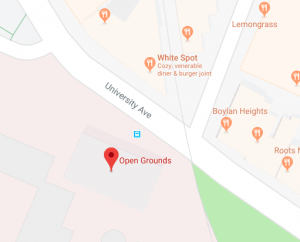
Open Grounds can be found at 1400 University Ave, Charlottesville, VA 22903, across the street from The White Spot.
Click here to RSVP to Global Inquirer’s event on Facebook, and click here to stay up to date with the podcast itself.








